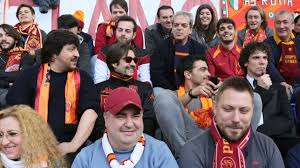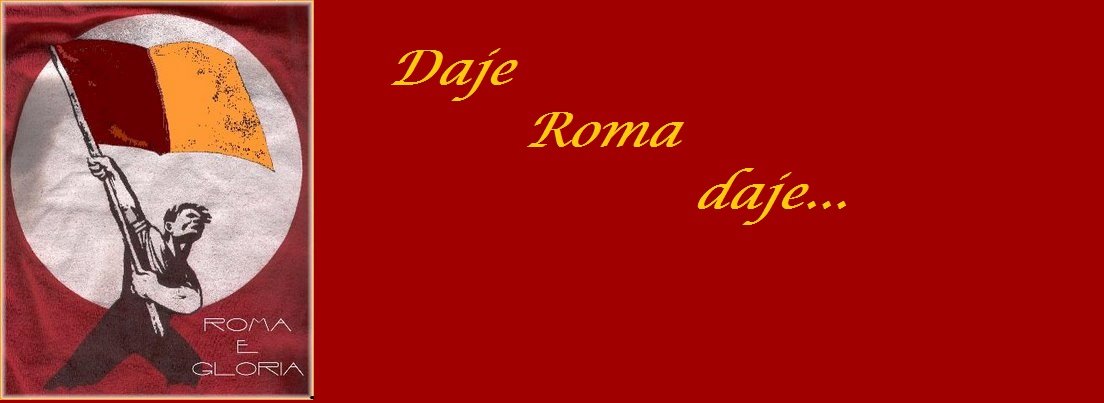Ovunque tu sarai e quel mainagioismo romanista che sta cambiando

Questo film mi chiamava. Mi chiamava come frequentatore della Sud. Mi chiamava come romanista. In quanti ci rivediamo nei 4 protagonisti? Quante volte li abbiamo incontrati nella Sud, nell’Olimpico, a Roma? E’ un film di nicchia, indicato soprattutto per romanisti (e non semplici tifosi della Roma), ma dentro c’è l’essenza dello sportivo in generale. C’è lo scaramantico (Francesco Montanari) che il padre (Pino Insegno) laziale ha chiamato Giordano e che se non segue una serie di rituali, sente la colpa della sconfitta della Roma. C’è il giocatore incallito (Ricky Memphis), che si gioca l’ultima partita contro il cancro (e quanti di noi purtroppo abbiamo dovuto scontrarci con questo terribile e bastardo (anche più bastardo della Juventus e della Lazio) nemico). C’è il personaggio (Francesco Apolloni) sopra le righe che, anche se non sarebbe il momento, ti strappa il sorriso. C’è il trentenne irrisolto e voce narratore (Primo Reggiani), con un matrimonio in vista, ma da eterno Peter Pan, vuole ribellarsi al proprio destino. La Roma è solo uno sfondo. La vera protagonista è la filosofia, la mentalità del romanista. Da quel giorno di Maggio del 1984, quando (per chi c’era) vedevamo i rigori di Roma-Liverpool (“Da quel giorno sono diventato grande: ho scoperto che Babbo Natale non esiste” dal film) alla trasferta a Madrid (la scusa per parlare di filosofia del romanista) vincente del 2008 (Real Madrid- Roma 1-2). E forse questo film ha ragione. Sì, siamo ancora nella fase mainagioia, ma ne stiamo uscendo. Tante partite ne sono la dimostrazione. Chi pensava di vincere Roma-Samp con quel gran rigore di Totti? E Roma-Torino dell’anno prima? E sempre Roma-Torino del 2014 (deciso all’ultimo respiro da Florenzi)? O Roma-Bayer Leverkuse 3-2, quando recuperati dal 2-0 al 2-2, segnammo con Pjanic il rigore della vittoria? E la vittoria all’addio di Totti, col gol nei minuti di recupero di Perotti (Roma-Genoa 3-2)? In quei momenti stavamo tutti pensando al Capitano e ad un addio triste. Sarebbe stato bene inquadrato nella filosofia del mainagioismo. Invece abbiamo vinto e quest’anno ci giochiamo la Champions. Forse è un miraggio. Il mestiere del romanista è sofferenza e dolore (ma anche gioia). E’ fiducia tradita (gli ultimi sono stati Pjanic e Spalletti). Ma io riconosco in questo film un sentimento di speranza che è anche mio. Quello che a pochi minuti dal termine di una partita che sta andando male, mi fa cantare con tutto la Sud, con tutti i trasfertisti, con tutto lo stadio. Il Mainagioia e la tristezza romanista forse un giorno la vedremo come un ricordo. E vinceremo. Sì, vinceremo. In fondo come diceva Jim Morrison: non c’è notte così lunga che non veda il sole risorgere. Daje Roma!
This movie called me. He called me as a frequent traveler to the Sud. He called me as a Romanista. How many do we see in the 4 protagonists? How many times did we meet them in the Sud, in Olimpico, in Roma? It is a niche movie, especially for romanists (and not just Roma fans), but inside there is the essence of the sportsman in general. There is the scamper (Francesco Montanari) that Lazio’s father (Pino Insegno) has called Giordano (like the historic footballer of Lazio) and that if he does not follow a series of rituals he feels guilty of Rome’s defeat. There is the rampant player (Ricky Memphis), who plays the last game against cancer (and how many of us unfortunately had to deal with this terrible and bastard (even more bastard of Juventus and Lazio) enemy). There is the character (Francesco Apolloni) over the lines that, although it would not be time, make you smile. There is an unresolved 30-year-old and narrator (Primo Reggiani), with a wedding in sight but eternal Peter Pan who wants to rebel against his destiny. Roma is just a background. The real protagonist is the philosophy, the romanist’s mentality. Since May 1984, when (for who we were) we saw the penalties of Roma-Liverpool (“From that day I became big: I found that Santa Claus does not exist” from the movie) to go to Madrid (the excuse to talk about Romanista philosophy) winning in 2008 (Real Madrid- Rome 1-2). And maybe this movie is right. Yes, we are still in the neverajoy phase, but we are coming out. Many games are the proof of it. Who was thinking of winning Roma-Samp with that great penalty of Totti? And Roma-Torino of the year before? And always Roma-Torino of 2014 (decided at last breath by Florenzi)? Or Roma-Bayer Leverkusen 3-2, when recovered from 2-0 to 2-2, did Pjanic score the penalty of victory? And victory at Totti’s bye, with goal of Perotti in injury time? In those moments we were all thinking of the Captain and a sad farewell, but it would be well framed in the philosophy of neverajoy. Instead we won and this year we play the Champions. Maybe it’s a mirage. The romanist’s profession is suffering and pain (but also joy). It is trusted betrayal (the last ones were Pjanic and Spalletti). But I recognize in this movie a feeling of hope that is also mine. What a few minutes from the end of a game that is going wrong, it makes me sing with all the Sud, with all the Romanisti in rival stadium, with all the Olimpico. Neverajoy and Romanista’s sadness may someday be seen as a reminder. And we will win. Yes, we will win. Basically, as Jim Morrison said, there is not so long night that you can not see the sun rise again. Daje Roma!
Giordano Sepi
